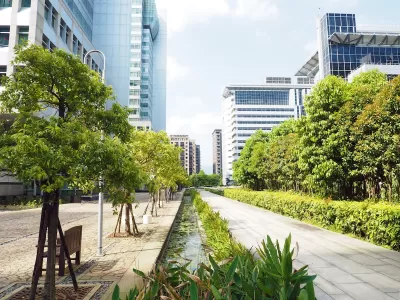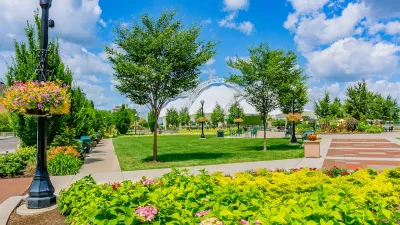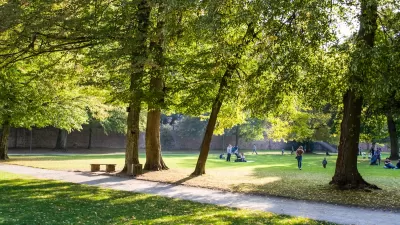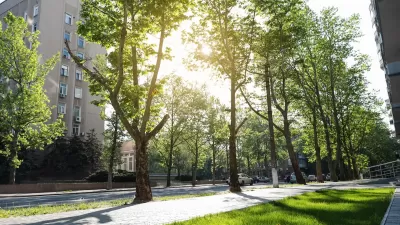Urban forestry job training programs are creating economic opportunities for underrepresented individuals while addressing workforce shortages and advancing tree equity in communities most impacted by environmental disparities.

Kris Cameron’s story exemplifies how urban forestry job training programs can provide life-changing opportunities for formerly incarcerated individuals. After struggling to secure stable employment, he joined the Green Reentry Job Training program at Garden Time, a Rhode Island nonprofit dedicated to preparing individuals for careers in tree care. The program gave him technical skills in arboriculture, professional support, and essential life skills, leading to his promotion as a foreman at Groundwork Rhode Island. His journey reflects the broader impact of these programs, which not only help participants rebuild their lives but also address workforce shortages in the green industry.
As rising temperatures and environmental challenges heighten the need for tree cover in underserved communities and older professionals retire from the field, urban forestry faces a labor gap that organizations like American Forests are working to fill. Through its Tree Equity Workforce Network, American Forests funds training initiatives like Garden Time, The Works in Memphis, and Tucson Clean and Beautiful, helping underrepresented individuals enter the tree-care profession. These programs provide technical education alongside wraparound services such as transportation, housing support, and mentorship, ensuring that trainees have the resources to succeed in their new careers.
As reported by Nicole Greenfield, tree equity is about more than planting trees — it is about creating economic opportunities for those most affected by environmental disparities. Programs like The Works’ Tree CPR train residents in communities with low tree canopy, equipping them with skills to improve their neighborhoods while securing stable employment. By expanding these initiatives, American Forests and its partners are not only greening cities but also fostering economic mobility and social justice. As participants plant and maintain trees that will outlive them, they are creating lasting legacies of resilience, opportunity, and environmental stewardship.
FULL STORY: Branching out: Growing careers and spreading equity through urban forestry

Maui's Vacation Rental Debate Turns Ugly
Verbal attacks, misinformation campaigns and fistfights plague a high-stakes debate to convert thousands of vacation rentals into long-term housing.

Planetizen Federal Action Tracker
A weekly monitor of how Trump’s orders and actions are impacting planners and planning in America.

In Urban Planning, AI Prompting Could be the New Design Thinking
Creativity has long been key to great urban design. What if we see AI as our new creative partner?

King County Supportive Housing Program Offers Hope for Unhoused Residents
The county is taking a ‘Housing First’ approach that prioritizes getting people into housing, then offering wraparound supportive services.

Researchers Use AI to Get Clearer Picture of US Housing
Analysts are using artificial intelligence to supercharge their research by allowing them to comb through data faster. Though these AI tools can be error prone, they save time and housing researchers are optimistic about the future.

Making Shared Micromobility More Inclusive
Cities and shared mobility system operators can do more to include people with disabilities in planning and operations, per a new report.
Urban Design for Planners 1: Software Tools
This six-course series explores essential urban design concepts using open source software and equips planners with the tools they need to participate fully in the urban design process.
Planning for Universal Design
Learn the tools for implementing Universal Design in planning regulations.
planning NEXT
Appalachian Highlands Housing Partners
Mpact (founded as Rail~Volution)
City of Camden Redevelopment Agency
City of Astoria
City of Portland
City of Laramie





























